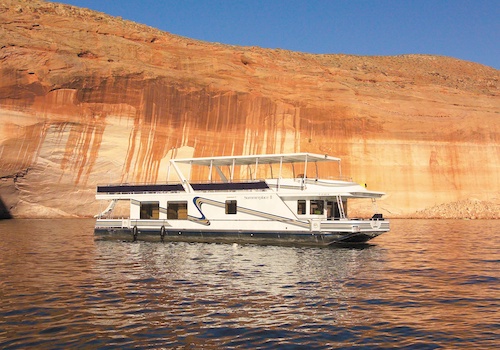Here’s the basic problem. When satellite TV was first designed, it was designed for things that don’t move. Things like houses and restaurants. Looking back even further, all television was essentially built around the idea that you tended to stay in your local area. Back in the 1950s, driving more than 50 miles was rare. It was something you did maybe once a year to take a big trip. Today it’s no big deal– some of us commute that far to go to work.
And let’s think for a minute about boats. TV on your boat wasn’t a big draw in the 20th century. Back then, getting away from it all meant no one saw you and you saw no one, sometimes for weeks at a time. It wasn’t until the early part of this century that satellite TV for boats even seemed possible, and people were glad for what they got.
Today, you want it all. You want internet, live TV, and more no matter where you sail. And as far as “getting away from it all?” That doesn’t mean anything. Chances are you want to be just as connected as you ever were.
Local channels on satellite TV
Generally speaking, you will lose your local channels once you get about 50 miles from a major city. This is true whether you’re on land or sea. So what are your options if you want local news or sports? What about if you want network TV, which is always local?
You could bring a TV antenna with you on the boat. TV antennas work pretty well on boats, often better than they do on land. Even a smaller antenna like this one will pick up signals from 75 miles away under the right circumstances. There’s nothing blocking the signal when you’re on the water so all sorts of antennas work better.
But what about satellite TV? That’s the harder ask, and in order to know why you have to sort of understand a little about how satellite-delivered locals work.
Prior to 2000, it was flat out illegal to broadcast signals from local channels outside the local area. Want to get Cincinnati locals when you’re in Miami? Too bad. For satellite operators, it meant two things. First, they were legally not allowed to let people get out-of-market locals if there were closer ones nearby. For people in the middle of Maine or Wyoming, they could get locals from another city but most people couldn’t.
Second, satellite operators weren’t even allowed to supply in-market locals because in order to do that, they would need to broadcast them up to a satellite where they could bounce back down to the ground. Because the satellite itself was outside the local area, it was against the law to send local signals to it without a huge amount of legal gymnastics.
Then that changed, sort of
A series of laws allowed pay-TV operators to supply local channels to local users as long as they followed some rules. One of those rules remained that you couldn’t supply distant channels to a market that had local ones. Another was that you couldn’t let your customers change markets willy-nilly.
These new laws drove massive growth for DIRECTV and DISH because they could supply local channels in almost every case. But even by 2000 the market for marine satellite barely existed. The laws didn’t take it into account.
Since then there’s been no major change to those laws, and they keep getting reauthorized every few years. It wouldn’t take much to carve out some sort of exemption for marine and RV users, but no one seems to want to do it.
This means that if your home marina is in Charleston, you’re getting Charleston locals or nothing at all.
There’s a loophole, but you need to know how to exploit it.
There are ways for DIRECTV and DISH customers to get different local channels, though. It’s not easy and not every dealer can do it. I’m not going to pretend that it’s super-hush-hush but I don’t want to go through the details on a public blog post. You see, those details might change from person to person.
That’s why you want to work with the experts. The folks at Signal Connect have done more marine satellite activations than anyone else in the world. We specialize in solving problems like this. When you call our US-based corporate offices, you’ll get a qualified and trained technician who can help you watch your satellite TV your way. You won’t go through a long phone tree and you won’t get people reading from a script. You’ll get an expert on the line who will be able to help right away.
Call us at 888-233-7563 and let us show you what we mean. We’re here during East Coast business hours. If it’s after hours, no problem! Fill out the form below. If we have staff on at that time, we’ll call. Otherwise we’ll contact you as quickly as we can.




